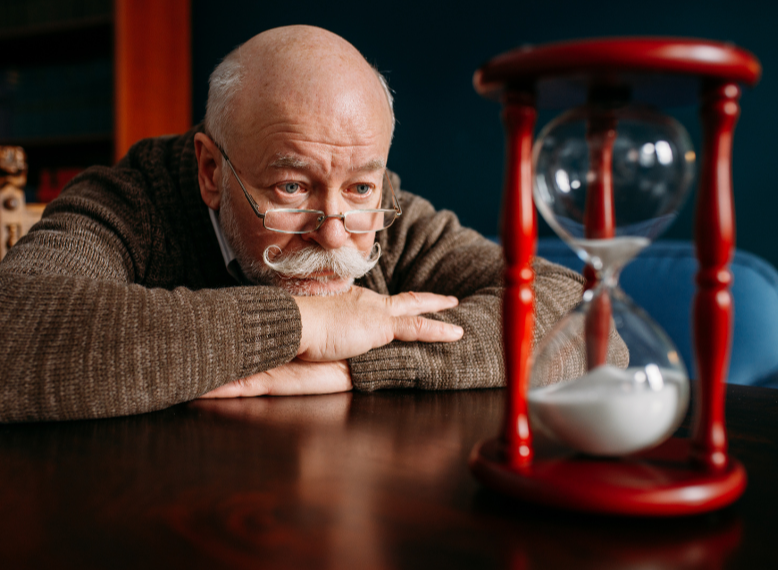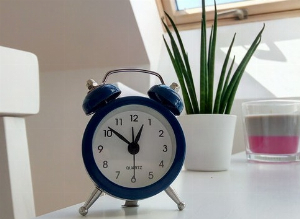The secret behind why time flies as you get older...
Published 27 Dec 2024 • By Somya Pokharna
Have you ever wondered why the days seem shorter as we grow older? Many of us reminisce about childhood when summers felt endless, yet as adults, the years seem to blur together. This phenomenon of “time flying” has intrigued psychologists, neuroscientists, and even physicists for years.
Why does time feel faster with age, and is there a way to slow it down?
Unravel the mystery in this article!

Why does time feel faster as we age?
The sensation that time flies as we age is a universal experience. Multiple factors, ranging from psychological to biological, contribute to this phenomenon. Here’s a breakdown of the main theories and explanations:
Routine dulls perception
As we grow older, life often becomes more predictable. The lack of novelty in daily activities results in fewer vivid memories, which compresses our perception of time in hindsight. For children, every day presents new learning opportunities and unique adventures, creating a rich tapestry of memories. In contrast, adults tend to settle into repetitive routines involving work, chores, and familiar activities, leading to fewer standout moments in memory.
Supporting this, studies highlight that memory encoding is enhanced by unique or emotionally significant events. Engaging in novel activities can increase the density of memories, making time feel fuller in retrospect.
Cognitive decline and slower information processing
Biologically, ageing affects the brain’s ability to process sensory inputs. Researcher Adrian Bejan explains that as neural pathways degrade, our brains process information at a slower pace, reducing the number of “mental images” our brains can record. This slower processing contributes to the feeling that time is speeding up.
Additionally, older adults experience more difficulty recalling past events due to natural declines in memory function. Memories that are harder to access can make the corresponding time period seem shorter, as our brain relies on available cues to reconstruct our sense of time.
The Ratio Theory
Our perception of time is influenced by the ratio of a given period to our total lifespan. For a 5-year-old, one year represents 20% of their life, while for a 50-year-old, it’s only 2%. This relative shrinking of time explains why periods like a year or a decade feel progressively shorter as we age.
Forward telescoping
Forward telescoping is a common cognitive bias where people underestimate the time elapsed since an event. For example, a memory that feels like it happened “last year” may, in fact, have occurred three years ago. This bias creates an illusion of compressed time in hindsight.
Studies in memory and event dating reveal that this distortion arises from how we organize and recall events. Significant events are often “pulled forward” in memory because of their salience, further contributing to the feeling that time has passed quickly.
The Holiday Paradox
The “holiday paradox” provides a fascinating lens to understand time perception. When engaging in novel activities like holidays, time feels fleeting in the moment because we’re fully absorbed. However, when recalling the event, the richness of new memories makes the experience seem much longer.
Can we slow down our perception of time?
While we can’t stop the clock, we can reshape how we experience it. By altering our habits and perspectives, we can make our days feel fuller and more meaningful. Here are some evidence-based strategies to help:
Seek new experiences
Engaging in novel activities is one of the most effective ways to expand your perception of time. New experiences, whether learning a skill, travelling, or trying a new hobby, create richer, more vivid memories, which stretch the perception of time when reflecting on the past.
Research shows that novelty enhances brain activity, activating regions associated with attention and memory formation. Even small changes, like taking a different route to work or exploring a new park, can make your days feel more eventful. Engaging in creative and mentally stimulating activities, such as painting, writing, or studying a new topic, keeps the brain active and improves memory retention.
Practice mindfulness
Being fully present in the moment can significantly enrich your perception of time. Mindfulness techniques, such as meditation, yoga, or even simple deep-breathing exercises, help anchor your awareness to the here and now. This practice not only makes moments feel richer, but also counters the tendency for time to feel like it’s slipping away.
Neuroscientific studies have shown that mindfulness enhances cognitive focus and reduces mental distractions. By training the brain to concentrate on the present, we process time more deliberately, making each moment seem more substantial. Incorporating mindfulness into daily activities, such as savouring meals, paying attention to nature, or engaging in active listening, can transform how you perceive the passing of time.
Stay well rested
Fatigue, stress, and overwork can distort our sense of time, making periods feel like they blur together. Rest and relaxation, on the other hand, enhance cognitive clarity, allowing us to better process and savour experiences. According to Adrian Bejan’s research, well-rested minds process sensory inputs more efficiently, creating a stronger sense of time’s passage.
Sleep deprivation has been linked to diminished memory consolidation and slower cognitive function, both of which impact time perception. A regular exercise routine, balanced diet, and consistent sleep schedule can counteract these effects, enabling you to engage with time more fully and meaningfully.
Expand your social connections
Social interactions also play a role in time perception. Spending time with others, especially in stimulating or meaningful conversations, enriches our daily experiences and provides mental markers that make time feel fuller. Activities shared with friends or family often feel more vivid in memory, stretching time in retrospect.
Key takeaways
Time may feel like it’s speeding up, but the key to slowing it down lies in our hands. Our perception of time depends on memory formation, novelty, and cognitive processing, and age-related changes in memory and brain function make time feel faster as we grow older.
By creating new experiences, practising mindfulness, and staying healthy, we can enrich our experiences and savour each moment. Understanding why time seems to pass more quickly as we age empowers us to make the most of our days, ensuring that they are filled with meaningful memories.
Did you find this article helpful?
Give it a “Like” and share your thoughts and questions with the community in the comments below!
Take care!
Sources:
Bejan, A. (2019). Why the Days Seem Shorter as We Get Older. European Review, 27(2), 187–194.
Broadway, J. M., & Sandoval, B. (2016). Why does time seem to speed up with age? SA Mind, 27(4), 73.
Friedman, W. J., & Janssen, S. M. (2010). Aging and the speed of time. Acta Psychologica, 134(2), 130-141.
Holmberg, B. (2024). Why Does Time Move Faster as We Get Older? Psychology Today.
Taylor, S. (2024). Why Time Seems to Speed Up as We Get Older. Psychology Today.
Wilson, J. (2022). Time Flies By Faster As We Get Older. Here’s Why. The Huffington Post.

 Facebook
Facebook Twitter
Twitter


